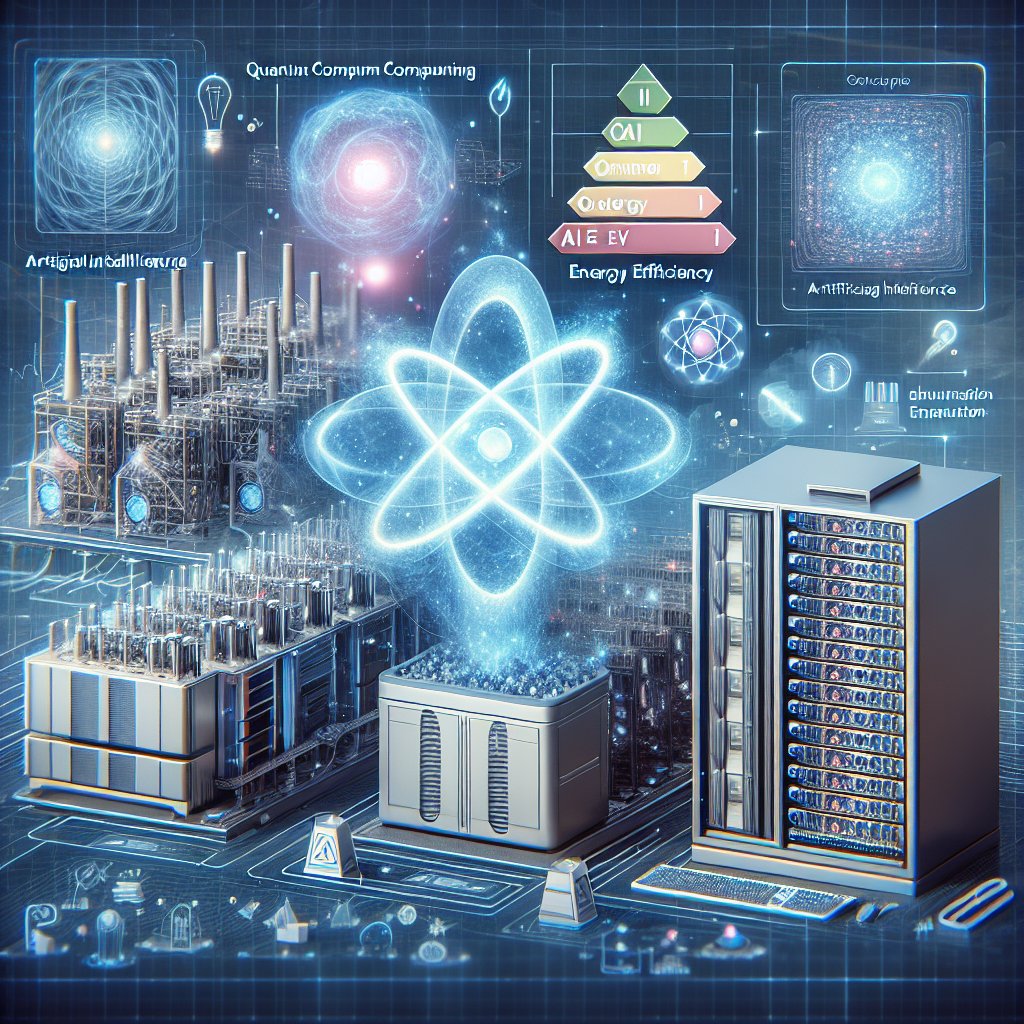The Energy Crunch of AI
AI’s explosive growth has made it a power-hungry beast, gobbling up electricity like a kid in a candy store. Data centers, the backbone of AI, are now consuming more power than some countries. The World Economic Forum predicts that by 2027, data center energy use could double. This surge is reshaping the utilities industry and forcing companies to rethink where and how they build these centers. In the U.S., electricity consumption is on the rise for the first time in over a decade, thanks to these digital behemoths. Some tech giants are even eyeing nuclear power to fuel their AI ambitions, while others are scouring for land with excess power or building their own power plants, often relying on natural gas.
Quantum Computing: A Potential Savior
Enter quantum computing, the superhero in the making for AI’s energy woes. Unlike traditional computers that plod through problems one step at a time, quantum computers tackle complex issues in a flash, potentially offering solutions that are faster and more efficient. They excel where traditional methods falter, such as in solving complex optimization problems. Quantum and AI together could be the dynamic duo we need, with quantum finding the most efficient solutions and AI applying them.
Quantum computing could revolutionize data center placement and utility grid management. By pinpointing optimal locations based on power availability, it can help utility companies streamline grid planning. Companies like GE Vernova and E.ON are already using quantum computing to enhance grid stability and optimize responses to potential threats. It’s a promising start, but the potential for quantum to reduce AI’s energy footprint is enormous.
Revolutionizing Energy Efficiency
Research suggests quantum computing could slash the computational power needed for AI by a staggering amount. A study in Science showed a D-Wave quantum computer solving a problem in minutes that would take a supercomputer a million years, using just 12 kilowatts of power. Imagine the savings if we applied this to blockchain or AI tasks. Quantum computing could cut electricity costs by up to 1,000 times, making it a game-changer for energy efficiency.
Supercomputing facilities worldwide are exploring how GPUs and quantum processing units can work together to reduce energy consumption. In Germany, Forschungszentrum Jülich is integrating quantum computing with its JUPITER exascale computer, aiming for breakthroughs in AI and energy efficiency. This could be the first pairing of its kind, potentially revolutionizing how we tackle AI’s energy demands.
Quantum AI: The Future of Model Efficiency
Quantum AI architectures could boost model efficiency and performance. Japan Tobacco’s pharmaceutical division recently used a quantum-hybrid AI workflow to generate new molecules, enhancing their drug development processes. The results were impressive, with the quantum AI workflow producing more valid molecules with better drug-like qualities than traditional methods.
In Canada, TRIUMF’s particle accelerator center demonstrated the power of combining quantum computing with AI to create simulation models for CERN’s Large Hadron Collider. Traditional simulations of particle collisions are costly and time-consuming, often taking weeks or months. By using quantum computing, the team achieved faster, more accurate simulations, showcasing the potential of quantum AI in scientific research.



